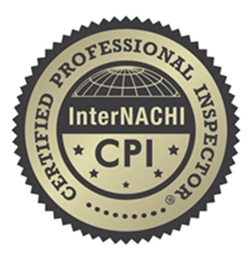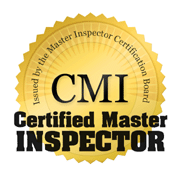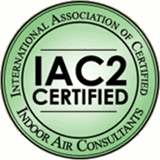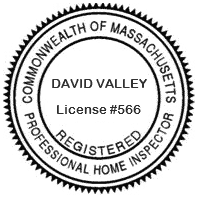Massachusetts Home Inspections YOUR INVESTMENT IS MY CONCERN
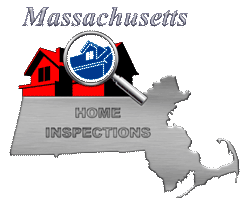
Sink Cabinets and Chemical Storage
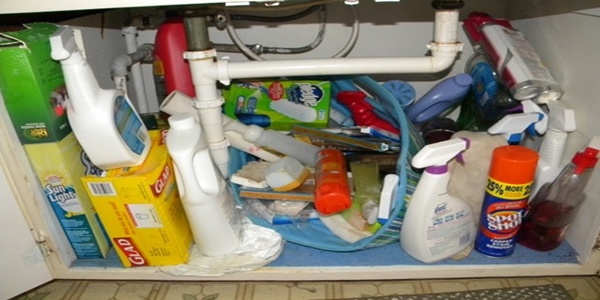
Think about what’s usually found inside your sink cabinets: the underside of a stainless steel sink, the metal casing of a garbage disposal, copper or CPVC water supply lines, and plastic, PVC, or metal drain pipes. All of these materials can be damaged by corrosive chemicals. Over time, repeated exposure can lead to rust, corrosion, and eventually leaks. Yet, many people still store everyday household chemicals—like cleaners and solvents—right in that same space.
Storing these items under the sink is not ideal, as many cleaning products are inherently corrosive. Over time, they can damage plumbing components and increase the risk of leaks. I strongly recommend keeping chemicals out of sink cabinets altogether. As an added benefit, this also reduces the chance of children accessing potentially harmful substances.
Most people rarely take the time to clear out the chemicals under their sink to inspect the cabinet floor or check the water and drainage pipes—unless they’re moving, discover a major leak, or a child is harmed after accessing the stored chemicals.
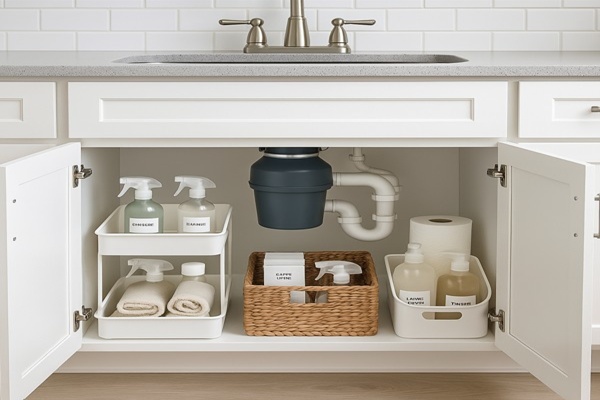
Water supply and drainage pipes should be monitored regularly, and there’s an effortless way to do this as part of your daily routine: store only dry materials—like towels, toilet paper, or tissue boxes—inside your sink cabinets. This makes it easy to notice leaks, as you’ll quickly spot any moisture when removing these items. If you find damp or wet materials, inspect for possible leaks or deterioration in the caulking around the sink edges and countertop backsplash. Always contact a licensed plumber to repair or replace faulty plumbing components, and be sure to address any damaged caulking or grout promptly.
So, where should you store hazardous chemicals? A high cabinet in the garage or another exterior location is ideal. However, if you need to keep them indoors, consider placing them in less accessible spots like an upper hallway closet, the cabinet above the microwave, or the cabinet above the refrigerator—safe, out-of-reach locations that help minimize risk.
Here is what my clients have to say about my home inspection services:
Press F5 (on your keyboard) for additional testimonials
Dave had an impressive website that seemed to be too thorough to be anything but genuine. The thing that seemed to sell me was that he says right on his website that you may pay a little more for his service, but that his quality is higher. So I decided to give him a try even though I had no reference from another person hoping for someone of top quality. I was not disappointed. He was at the home early as promised and had done an inspection of the exterior and was writing up notes so that when I arrived, he walked me through the exterior first. Even with his early arrival, we were still there for about 3 hours looking through every little corner and cubby. He would occasionally stop and fill out his inspection forms which were easy to follow and read; he gives you a full folder of his notes that are well organized.
Dave was open to all questions and concerns so every time I saw something that was potentially concerning to me, he would look, give his opinion and often shared other experiences with similar circumstances. He also had a good sense of humor which helped to lighten what can be a stressful experience (having someone pointing out problem items that you didn't see). I would highly recommend Massachusetts Home Inspections.
Michael


